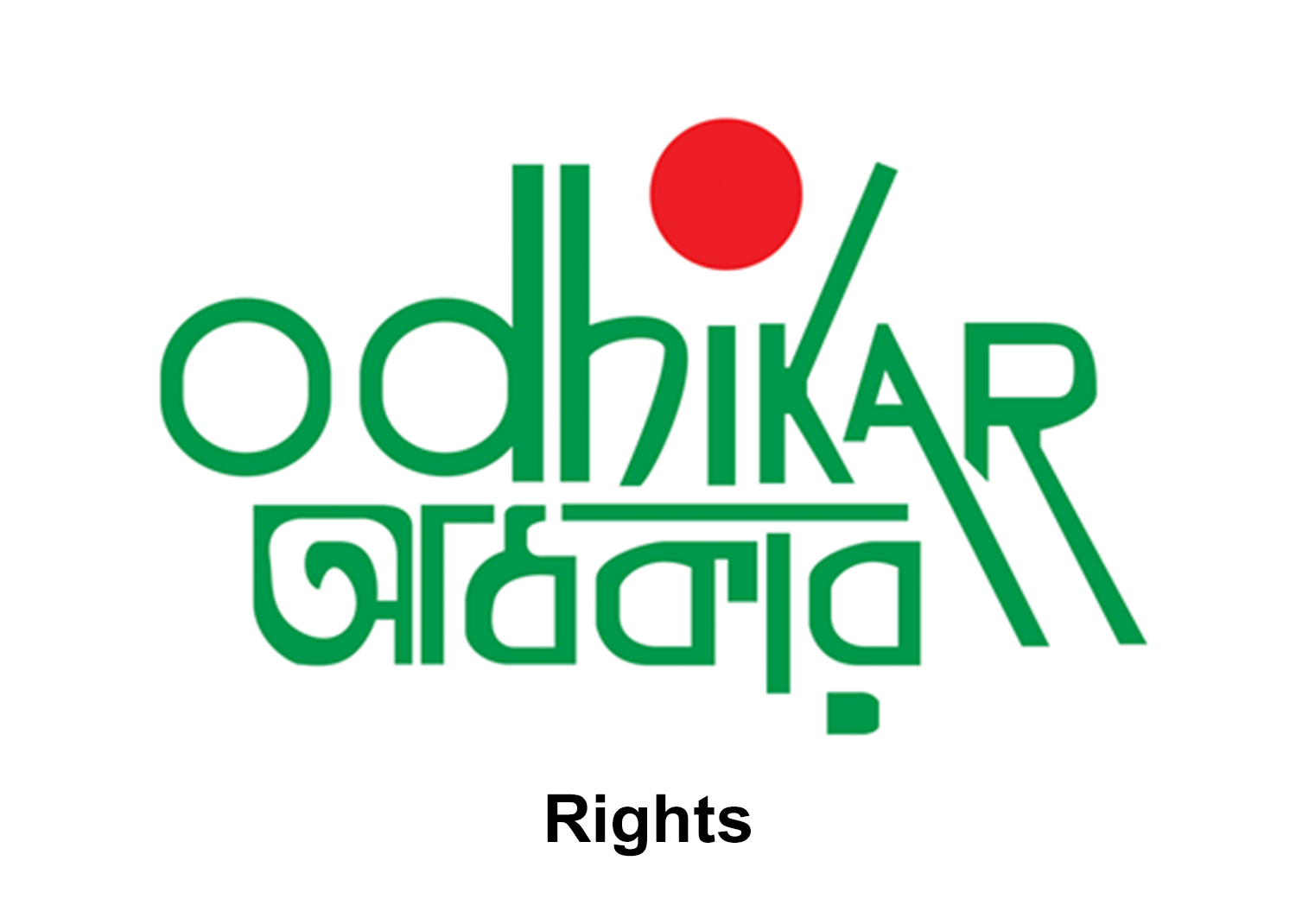Dhaka, 9 August 2023
10th August marks ten years of extreme state repression on Odhikar. On 10 August 2013, Odhikar’s Secretary Adilur Rahman Khan was picked up by members of the Detective Branch (DB) of Police for publishing a report on extrajudicial killings, centering around the Hefazate Islam rally that took place on 5 th and 6th May 2013. Later, Adilur Rahman Khan and Odhikar’s Director ASM Nasiruddin Elan were charged under the Information and Communication Technology Act, 2006 (Amended in 2009). They were released on bail after spending 62 and 25 days in jail respectively. The court case against them has been going on for 10 years and the Cyber Tribunal of Dhaka may give its judgement any day now.
In addition, on 11 August 2013, members of the DB Police raided Odhikar’s office and confiscated laptops and desktops containing various important documents, and sensitive information on various victims, including victims of violence against women and their families. Also seized were various documents on human rights issues. None of these have been returned to Odhikar till date. Over the past 10 years, Odhikar’s staff have been subjected to constant intelligence surveillance, harassment and intimidation; while also being barred from carrying out various programmes and activities. Many of the women human rights defenders associated with Odhikar have been forced to refrain from human rights activities due to intelligence surveillance and harassment too. Since 2014, Standard Chartered Bank has frozen Odhikar’s accounts on the government’s order, crippling its activities.
In the last 10 years, human rights defenders associated with Odhikar have been repeatedly attacked and detained under the repressive Information and Communication Technology Act, 2006 (Amended in 2009) and the Digital Security Act, 2018. From 10 August 2013 till date, various media supported by the Awami League government spread false and fabricated propaganda against Odhikar, and personal attacks on Adilur Rahman Khan, which still continue. The government has used state institutions to harass Odhikar and suppress people associated with it for the past 10 years. These include the Anti-Corruption Commission (ACC) and the Election Commission (EC). The ACC which is subservient to the government, after investigating Odhikar for a long time under the government’s instructions, cleared Odhikar after being unable to produce any cognisable evidence against the Organisation. On the other hand, in order to prevent Odhikar from observing the 11th National Parliament elections held on 30 December 2018, the EC unilaterally cancelled Odhikar’s registration as an election monitoring organisation without considering laws and regulations. The NGO Affairs Bureau (NGOAB), under the Prime Minister’s Office, put Odhikar’s application for renewal of its registration on hold for eight years and then refused to renew it. Odhikar filed an appeal to the Secretary of the Prime Minister’s Office (PMO) in accordance with the law, challenging the decision of the NGOAB, and the PMO upheld the NGOAB’s decision to not renew Odhikar’s registration.
Odhikar has been vocal against various human rights violations, including enforced disappearances, extrajudicial killings, arbitrary detentions, restrictions on freedom of expression and against custodial torture and it has also been engaged with the United Nations Human Rights mechanisms. Odhikar is being repressed as a result of this. The government has termed Odhikar’s human rights activities as ‘anti-state’ and ‘anti-government’. Shutting down Odhikar would silence the voices of countless victims of human rights abuses. In any democratic state, human rights organisations can act against human rights violations without any hindrance, and assist the government in improving human rights records. Independent human rights organisations are prevented from functioning as they should only in repressive state systems where human rights defenders are persecuted. Odhikar is a victim of such a situation in Bangladesh. Odhikar’s human rights defenders continue to work because of their determination to continue the struggle to uphold and protect human rights, even in extremely oppressive situations. Odhikar believes that if a democratic state can be formed on the basis of equality, human dignity and social justice, the people of Bangladesh will be free from these extreme violations of human rights.
In solidarity,
The Odhikar Team

